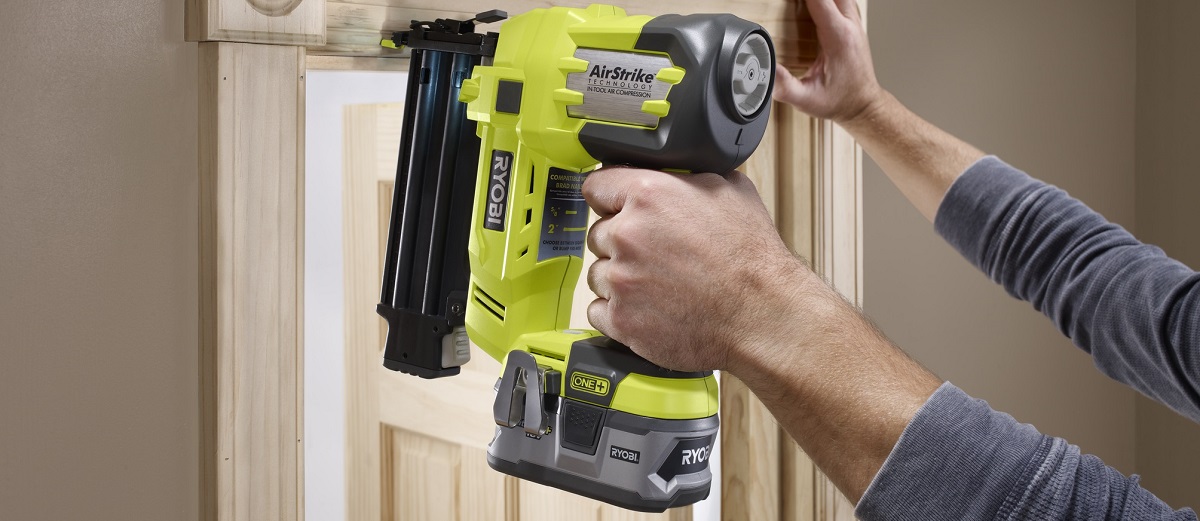
A nail gun is a tool designed for hammering nails, brackets, and studs without physical force. The variety of its types is quite big. Depending on the purpose, you may choose the best finish nailer that will be perfect for you. The nailer helps speed up and facilitate the working process significantly when you have a large amount of work to do. The operation with such device is very simple and much easier than with a hammer or stapler. By pressing the trigger, you transfer the drive’s energy to the piston, which hits the nail and drives it to the base. The main thing is to choose the most suitable type of device for the appropriate kind of work.
Types Of Nail Guns
Framing Nailers
This type of nail gun is good for installing wooden structures, roof systems, battens, floors, assembling wooden pallets, etc. Such nailers work with large-sized nails that have O-shaped or D-shaped caps.
Sheathing Nailers
They’re usually applied for exterior trim or siding. Also, the oriented strand boards and plywood, as well as a number of other sheet materials can be fastened with such nail guns. There is one difference in nail guns of this type, which consists of a more spacious number of nails, than the other nailers have, as the consumption of nails during sheathing works is quite big.
Finish Nailers
This type of nail guns should be chosen for fastening of such elements as beadings, skirting boards, moldings, or platbands, which use thin nails without caps. The finishing gun is a cassette type of nailers, where the nails are assembled into a cassette and fastened on plastic or on paper. The nails, fortified on a metal wire, are not used for these types of work, as they leave burrs. The attached part shouldn’t have damage and the fastener itself should be invisible.
It should also be noted that the finishing guns are equipped with a sensitive adjustment nailing depth and have a rubber tip that protects the attached part from scratches and dents.
Roofing Nailers
The roofing nail guns are designed for attaching flexible shingles and rolled roofing materials, which are mounted with galvanized brushed nails with large caps. After all, when installing a soft tile, you need to hammer a large number of nails in a short period of time. Also, the roofing nailers can be used for fixing natural types of tiles. They are initially equipped with special adapters for precise positioning to the attachment points.
What You Should Pay Attention To Choosing A Nailer
It’s necessary to consider the main parameters that should be taken into account when choosing a nail gun.
The basic one is the performance. In other words, the number of shots performed by a tool in one minute. For domestic use, 30 will be enough.
The second important point is the capacity of the tool. The powerful, professional models produce up to 300 nails without reloading, but for a simple user, 150 will be enough. The impact force is also important. It’s inversely proportional to the performance. The faster the device drivers nails, the weaker it is. A nail gun with a maximum speed of clogging can only cope with drywall, plywood, and thin boards.
Also, it’s better to opt for a device with a titanium lid that protects it from mechanical damage. Some models come with a special lubricant, a spare switch, and safety glasses.
